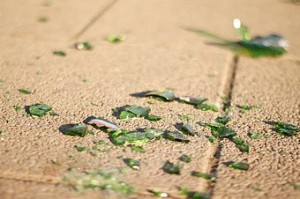 Three minutes, maybe four. Six minutes, maybe seven. A little bit of time.
Three minutes, maybe four. Six minutes, maybe seven. A little bit of time.
This morning open Google chrome to my homepage the University of North Carolina Asheville. Once it’s loaded, a quick glance at upcoming events. A post Civil War lecture.
First thought: Living in the South, I really should know more about the Civil War and its aftermath. Click.
The link takes me to the North Carolina Center for Creative Retirement’s Appalachian Studies Authors Series. I’ve already received an e-mail message and read a story in the Asheville Citizen Times about this series.
When I first learned about it, and on reading about the series again this morning I feel envy, doubt, fear. How did the NCCCR get Charles Frazier, a pretty reclusive, nationally celebrated writer who lives in Asheville? Should I take greater interest in his work and the work of other local authors who explore regional culture?
Are my tastes in literature too cosmopolitan (read: Jewish) for this community?
On the way down the screen to find information on the talk, I see information on other NCCCR programs: Asheville Community Theatre’s Readers Theatre, Astronomy Club of Asheville, Celebrating Life in the Mountains, Dante Lecture—stop.
A special lecture by a noted Dante scholar, retired from Brandeis where, among other things, he served as the Chair of the School of Humanities. Why don’t I know him? Am I failing to network enough on campus?
The (at this point not so) new director of the NCCCR seems to be doing a good job organizing and presenting interesting programs. Why hasn’t she noticed me, if not my work as a writer, then my work organizing programs for campus and community? Am I irrelevant, inadequate?
I drag cursor to the bookmarks bar. Find Good Letters. Words. Made Flesh. Click.
“Weddings, Women, Sweets, and Wishes”: 133 Facebook shares, fourteen Tweets, 152 other shares.
Check my most recent Good Letters post, more than a week before: Seventeen Facebook shares, five Tweets, twenty-two other shares. Is my work not interesting enough to share widely? Click.
Scan The New York Times headlines:
“Citing Growth, Fed Chief Gives No Hints of New Stimulus.” Will this keep the market from recovering from its recent losses? What about my investments?
“Obama’s Campaign Raised $60 Million in May.” Will Obama have enough funding to campaign aggressively and effectively this fall?
“San Diego and San Jose Lead Way in Pension Cuts”; “The Alzheimer’s Gene: One Family’s Saga”; “CT Scans Increase Children’s Cancer Risk, Study Finds.”
Retirement, health, politics, worry, worry, and more worry. Uncertainty and fear.
Good morning. Click, click, click. Tick, tock, these words that say time is passing.
For me, this morning, like many mornings, the passage of the short period of time (eight, nine minutes?) between completing my morning practice (sitting meditation, reading of the daily psalm before and after the sit) and beginning to write (journal, essay, poem) might more accurately be represented by the words click, click.
Nine or ten minutes, not much time. Insignificant, really. Really?
So often I’ve pointed out to students—lit students, young poets—how poets of one generation often direct their attentions to places, people, and situations that previous generations of poets ignored because they were too trivial or domestic or simply not the stuff of serious poetry.
One example is W. C. Williams’ poem “Between Walls.”
Between Walls
the back wings
of the
hospital where
nothing
will grow lie
cinders
in which shine
the broken
pieces of a green
bottle
Such an unlikely place to find a poem!
So often I’ve encouraged students to look away from the words in a poem that seem most important. In “Between Walls,” the words hospital, cinders, shine, broken, pieces, green, and bottle.
Instead of these words, I might say to students, consider “of the” and “of a.”
How expressive could these two nearly identical, functional phrases be? What about the order in which they occur, first “the” then “a”? Anything of interest?
From “of the” to “of a,” the poem moves from definite to indefinite, specific to generic, narrow to wide. This development corresponds to a change in what’s perceived. From lifelessness, “the back wings/of the//hospital where/nothing//will grow” to life, broken and beautiful, “shine/the broken//pieces of a green/bottle.”
When one widens one’s view of things, to take in more than one’s personal interests (from the hospital to a bottle), one may find beauty where it’s least expected.
Of the, of a. Words that might have been easily overlooked turn out to express the poem’s deepest wisdom!
What about the ten or eleven minutes I spend clicking around before getting down to work? Might they have any wisdom to offer?
I don’t know enough; I’m out of touch; I’m not smart enough, talented enough; I’m not in control—of the economy, the government, the genetic destiny of my own body….
Is this the story I tell myself with every click?
Is there another underlying story? Is it this: I’m vulnerable; I’m imperfect; I’m mortal; I’m afraid?
Clicking away—morning, afternoon, and evening, that habit, foolish or wise, may not be, finally, so harmful.
The destructive habit may be this: Feeding, as if it were ravenous, the belief that I must be in control, powerful, all knowing, always at the heart of things. Anything less means I’m a failure.
The unproductive habit may be turning away, again and again, from the fundamental story of life, at least of my life: I’m vulnerable; I’m imperfect; I’m mortal; I’m afraid.
Nourishment, perhaps, is to be found right there, in the very experience of that which I have been conditioned to see as weakness that needs to be overcome.
Why do I practice meditation? Why do I read the daily psalm? Why do I write?
One reason has become clear to me now, to practice being with, rather than clicking away from, life itself, broken, shining, green.










